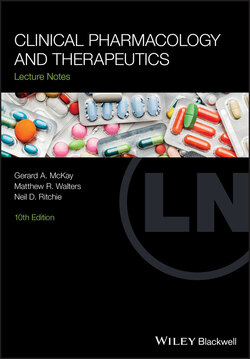Читать книгу Clinical Pharmacology and Therapeutics - Группа авторов - Страница 159
General pointers on good prescribing
ОглавлениеThe ability to prescribe drugs in a safe, effective and thoughtful manner is one of the defining characteristics of a good clinician. It can be a deceptively difficult skill to acquire and requires constant maintenance as the range of drugs available expands. The following advice is distilled from many years of experience of prescribing and is offered to provide some general principles applicable to most situations.
1 Wherever possible, minimise the number of drugs and total number of doses to be given. Always satisfy yourself that a prescription is necessary before considering a pharmacological solution to the problem.
2 Make an effort to ensure that the patient understands the reason for the prescription, and is aware of how it should be taken. Patients are much more likely to take a drug if they feel they understand why it is felt to be necessary.
3 Familiarise yourself with a limited number of well‐established drugs with known effects and side effects. Do not chop and change amongst equivalent preparations on whim or fancy. Avoid trying out new preparations simply because of novelty or extensive commercial promotion.
4 Check the dose carefully each time you prescribe. Do not trust to memory and be particularly careful when doses are in the microgram range or when prescribing for children and the elderly.
5 Finally, always review drug prescriptions regularly: every day in hospital patients, or weekly or monthly as appropriate in outpatients or general practice. When reviewing prescriptions ask the following questions:Is it clear why the drug has been prescribed and is it still necessary?Is the drug achieving its desired effect?Are there any symptoms or adverse effects that could be secondary to drug treatment?In general practice, has a maximum of 1 month's supply been prescribed?In patients receiving more than one treatment, is there any clinically significant drug–drug interaction that should be addressed?
Do not continue treatment by repeating prescriptions over long periods of time without assessing the response in the patient, or worse still, without seeing the patient.
